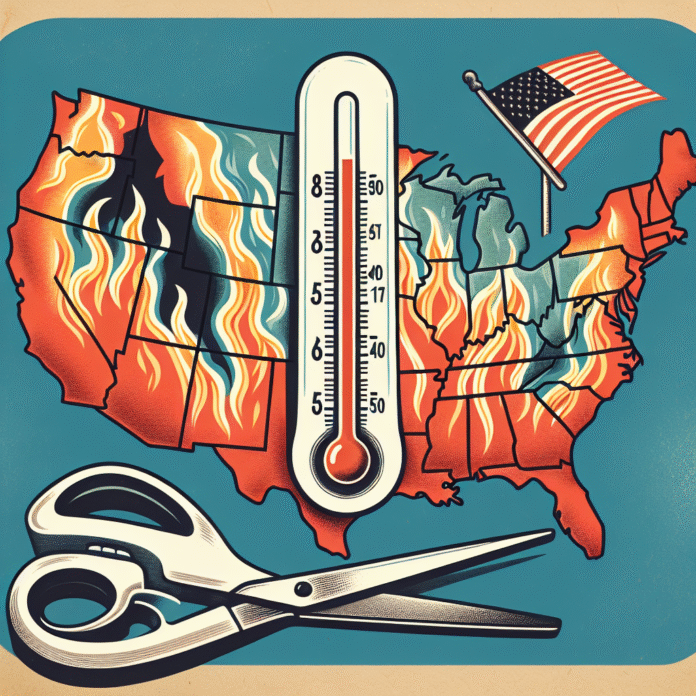U.S. Faces Heatwave Risks Following Trump Administration Cuts
“`html
ESG News Recap: U.S. Vulnerable to Heatwave after Trump Cuts
In recent developments, the United States faces increasing vulnerability to extreme heatwaves, a situation exacerbated by environmental policy changes during the Trump administration. The rollback of numerous regulations aimed at reducing carbon emissions and promoting sustainable energy has raised concerns among scientists and environmentalists about the long-term impacts on climate stability.
Research indicates that the frequency and intensity of heatwaves are likely to increase due to climate change, with regions in the U.S. already experiencing record-breaking temperatures. The National Oceanic and Atmospheric Administration (NOAA) has reported that the average temperature across the contiguous U.S. has increased significantly over the past century, leading to heightened risks of heat-related illnesses and fatalities.
The Impact of Policy Changes
The Trump administration made sweeping changes to environmental policies that directly impact climate resilience. Key actions included withdrawing from the Paris Agreement and dismantling regulations that limited greenhouse gas emissions from power plants and vehicles. These decisions have been criticized for undermining efforts to combat climate change and protect vulnerable populations from its effects.
Experts warn that the lack of federal regulations can hinder local and state efforts to address climate adaptation and mitigation. Without a cohesive national strategy, regions most susceptible to extreme weather events, such as the South and Southwest, may struggle to implement effective heat response plans.
Health Consequences of Heatwaves
The health implications of rising temperatures are profound. Extreme heat is linked to increased occurrences of heat exhaustion and heatstroke, particularly among vulnerable populations such as the elderly, children, and those with pre-existing health conditions. Additionally, heatwaves can exacerbate air quality issues, leading to respiratory problems and other health complications.
Communities across the nation are being urged to invest in heat resilience strategies, such as creating more green spaces, improving urban planning, and establishing cooling centers. These initiatives are vital in safeguarding public health and enhancing community resilience against extreme heat.
The Road Ahead
As the U.S. grapples with the consequences of climate change, the importance of Environmental, Social, and Governance (ESG) considerations becomes increasingly clear. Investors and companies are now recognizing that sustainable practices are not just beneficial for the planet but are also crucial for long-term financial viability.
In response to these challenges, many local governments and private sectors are stepping up their efforts to address climate change through innovative solutions and sustainable practices. The focus on renewable energy, energy efficiency, and sustainable agriculture is gaining momentum, reflecting a shift toward a more resilient and sustainable future.
In conclusion, the vulnerability of the U.S. to heatwaves highlights the urgent need for comprehensive climate policies and community action. As we move forward, collaboration among government, businesses, and citizens will be essential to mitigate the risks associated with climate change and protect public health.
“`


